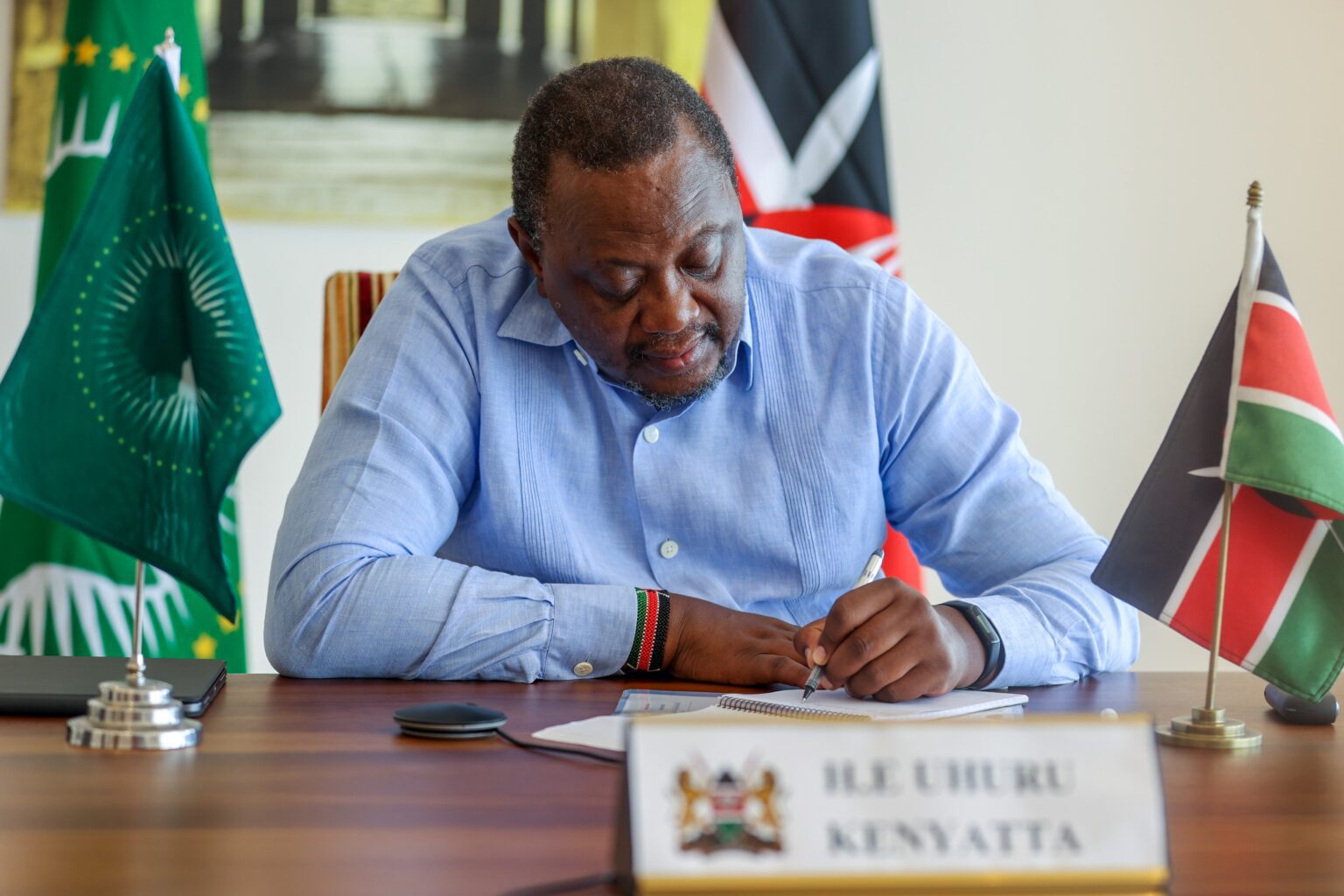Chief Justice Martha Koome has appointed a three-judge bench to preside over a high-profile constitutional petition seeking to hold former President Uhuru Kenyatta and senior officials in his administration personally liable for the accumulation of Sh4.6 trillion in public debt.
The appointment, communicated by High Court Assistant Deputy Registrar Beja Nduke, comes after Justice Bahati Mwamuye referred the matter to the Chief Justice in June 2025, citing the petition raised “substantial questions of law” under Article 165(4) of the Constitution.
The panel, composed of Justices Josephine Wambua Mong’are, Moses Ado Otieno, and Francis Gikonyo, will sit at the Commercial Division of the High Court in Milimani, Nairobi, to hear the matter.
Petitioners: Okiya Omtatah and Others
The case was filed by Busia Senator Okiya Omtatah and eight other petitioners. They are seeking to have Uhuru Kenyatta, former Treasury CS Njuguna Ndung’u, Controller of Budget Margaret Nyakang’o, and Auditor-General Nancy Gathungu held personally liable for debt incurred during the Jubilee administration.
The petition challenges the legality and constitutionality of debt incurred from the 2014/15 to 2021/22 fiscal years, alleging a lack of parliamentary oversight and transparency, especially in the handling of Eurobond proceeds.
Petitioners argue that public debt rose from Sh2.37 trillion in June 2014 to Sh8.57 trillion by 2022, and cite Article 226(5) of the Constitution, which states that public officials can be held liable for misuse of funds, even after leaving office.
If the holder of a public office directs or approves the use of public funds contrary to law… the person shall make good the loss, whether the person remains the holder of the office or not,” reads Article 226(5).
Ruto’s Government Also Under Scrutiny
In addition to the Sh4.6 trillion borrowed during Kenyatta’s tenure, the petition also questions the legitimacy of Sh2.2 trillion in additional borrowing under President William Ruto’s government, alleging the debt also qualifies as “odious”.
The petitioners want both regimes held accountable for what they term as irresponsible debt accumulation without sufficient legal and legislative safeguards.
Attorney General Opposes Petition
Attorney General Dorcas Oduor has opposed the petition, arguing that it interferes with an ongoing public debt audit by the Auditor-General, which covers the period from 1963 to present.
In court filings, the AG revealed the audit officially began on September 16, 2024, and warned that parallel court proceedings would undermine the independence and integrity of the audit.
“The Auditor General, prior to the filing of this petition, was already seized of and is presently engaged in an active audit of public debt from independence to date,” Oduor stated.
She argued that forcing the government to defend itself in court now would compel Auditor-General Gathungu to participate in judicial proceedings, potentially prejudicing the outcome of her office’s independent audit.
Related Case and Next Steps
The petition has been compared to High Court Petition No. E248 of 2023, which is currently before a separate three-judge bench. Justice Mwamuye, in his June ruling, cited the similarities in scope and legal questions when recommending empanelment.
The court has instructed the National Assembly, Treasury, Auditor-General, and other named parties to file their responses in preparation for hearing. A court date is expected to be announced in the coming weeks.
As Kenya continues to grapple with a ballooning public debt crisis and rising economic pressure, this landmark case could set a precedent for legal accountability in public financial management.

